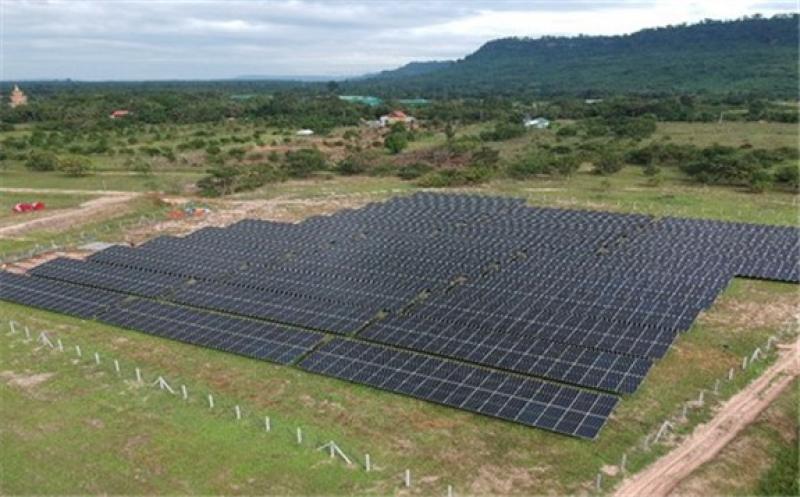Cambodian natural mineral water producer Kulara Water has commissioned France’s TotalEnergies to design, install and operate a solar array coupled with on-site energy storage for its bottling facility in Siem Reap Province.

The system combines a 650kWp ground-mounted solar array and an 896kWh battery. With the installation completed early this month, TotalEnergies will remain in partnership with Kulara Water for the next 15 years to ensure the safe operation of the system.
The project is intended to improve Kulara Water's energy efficiency, reduce power costs, and ensure better access to power supply. “This project represents the latest achievement in our sustainability strategy and is just the beginning of our adoption of solar energy solutions to power our operations,” said Margaret Forey, Chairwoman of Kulara Water.
For TotalEnergies, this is the second recent C&I PV installation in Cambodia. In December, the French energy giant partnered with Vanco Industries to install 750kWp of rooftop solar on its factory in Kandal province to help garment manufacturers such as Swedish retailer H&M deliver on its climate commitments.
A lack of access to reliable electricity supply and high electricity prices have become an obstacle for companies and industries in Cambodia, undermining the Kingdom's competitiveness compared to its neighboring countries. While its neighbor Vietnam has seen astounding growth of PV installations, Cambodia has been slow to diversify its energy mix and remains mostly reliant on hydropower and coal.
Under the current solar regulation in Cambodia, C&I customers connecting solar PV for self-consumption are subject to a two-part tariff, consisting of a usage charge and a capacity charge. The usage charge tariff, ranging from 9.3 to 12.0 USD ¢/kWh, is lower than the one-part tariff charged to users only buying power from state-owned electric utility EDC.
The capacity charge is charged per month on the basis of the contract demand (in kW) that is agreed with EDC for customers connecting at higher voltages. In Cambodia, solar is the only technology subject to a capacity charge, with all other technologies charged a simple, one-part, per kWh tariff, according to Deutsche Gesellschaft für Internationale Zusammenarbeit (GIZ).